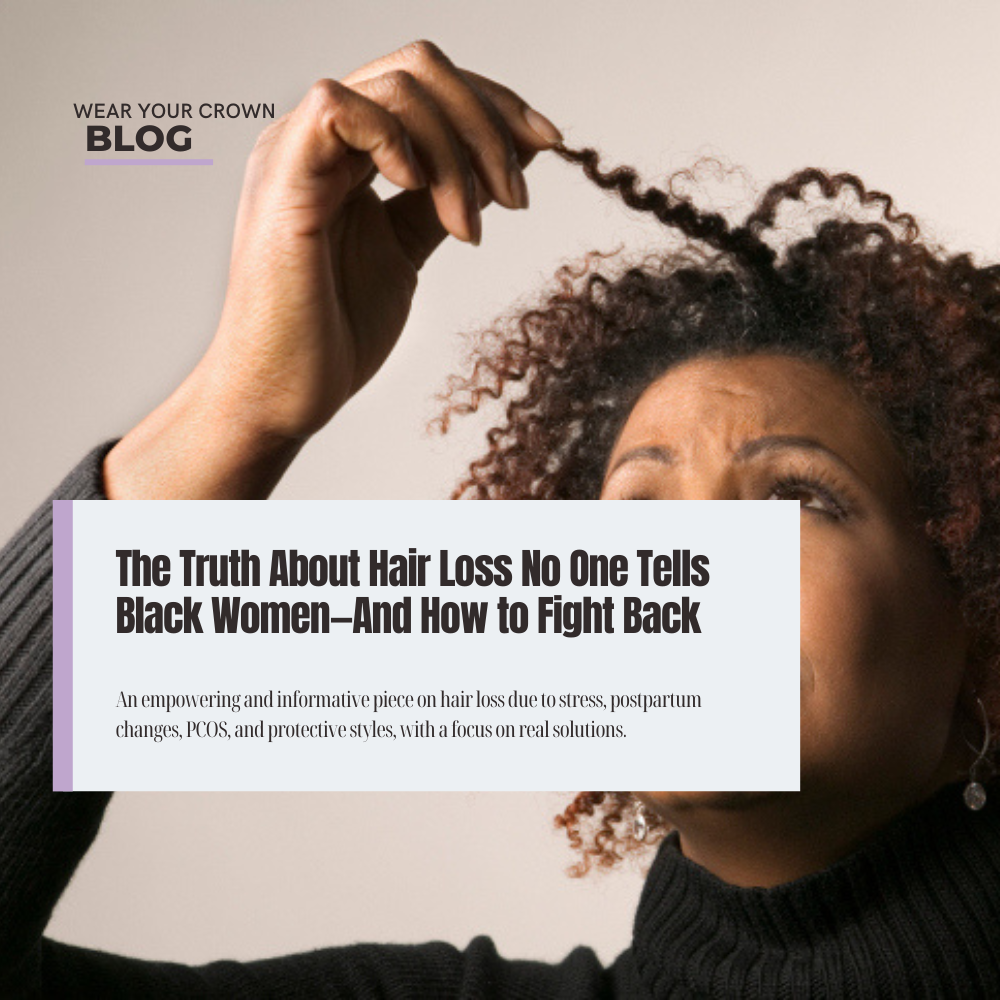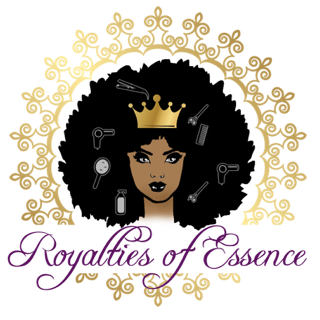
The Truth About Hair Loss No One Tells Black Women
Hair is more than just beauty—it's identity, pride, and culture. For Black women, the relationship with our hair runs deep. But what happens when that crown starts to thin, shed, or disappear altogether? Hair loss is a real and growing concern in the Black community, yet it’s often misunderstood, misdiagnosed, or completely overlooked. Let’s break the silence and get to the root of what’s really going on—and how to reclaim your hair health.
The Hidden Epidemic: Why Hair Loss Is More Common Than You Think
Studies show that nearly 47% of Black women experience some form of hair loss, yet very few feel comfortable speaking up or seeking help. Whether it’s thinning edges, bald patches, or excessive shedding, many of us suffer in silence—thinking it’s just “part of getting older” or that we’re doing something wrong.
The truth? Hair loss in Black women is often caused by a combination of stress, hormonal imbalances, tight hairstyles, and harsh chemical treatments. But there’s another layer: lack of access to culturally competent hair care guidance and misinformation.
Top Causes of Hair Loss in Black Women
Here’s what’s really at play:
-
Traction Alopecia: Tight braids, weaves, ponytails, and wigs can cause tension that pulls hair from the follicle over time.
-
Hormonal Imbalances: Conditions like PCOS or postpartum shifts can affect hair growth cycles.
-
Scalp Neglect: A healthy scalp is the foundation of healthy hair. Product buildup, lack of moisture, and not cleansing regularly can hinder hair growth.
-
Stress: Chronic stress triggers inflammation in the body, which can impact hair follicles.
-
Nutritional Deficiencies: Low levels of iron, vitamin D, or protein can lead to weak, brittle hair and thinning.
How to Fight Back and Reclaim Your Crown
Hair loss isn’t the end of your story—it’s a signal to shift how you care for your scalp and strands. Here’s how to take action:
1. Choose Gentle, Natural Hair Care Products
Ditch the harsh chemicals and sulfates. Switch to plant-based, organic formulas that prioritize scalp health, moisture retention, and hair strength—like those from Royalties of Essence, which are specifically crafted for coily, kinky, and curly textures.
2. Embrace Low-Manipulation Styles
Protective styles should protect, not stress. Go for loose braids, buns, or twists that don’t pull on the edges or scalp. Rotate styles and give your hair breaks to breathe and thrive.
3. Feed Your Scalp
Scalp health is often ignored but vital. Incorporate oils rich in nutrients like castor, peppermint, or rosemary. Massage your scalp regularly to stimulate blood flow and hair growth.
4. Address the Inside, Too
Hair health is an inside job. Get your vitamin levels checked, stay hydrated, and aim for a nutrient-rich diet full of greens, protein, and omega-3s.
5. Seek Professional Help When Needed
Don’t wait until the damage is extreme. Trichologists and dermatologists who understand textured hair can help you identify the root cause and provide personalized solutions. We offer personalized consultations as well. 
Final Thoughts
Hair loss is not just about aesthetics—it’s a call for deeper care, self-awareness, and intentional healing. As Black women, we deserve products, education, and support systems that honor the uniqueness of our hair and our journey. By shifting the focus to hair health over just hairstyles, we empower ourselves to grow—not just our hair, but our confidence.
Ready to fight back the healthy way?
Start with your scalp. Start with your routine. Start with you.


